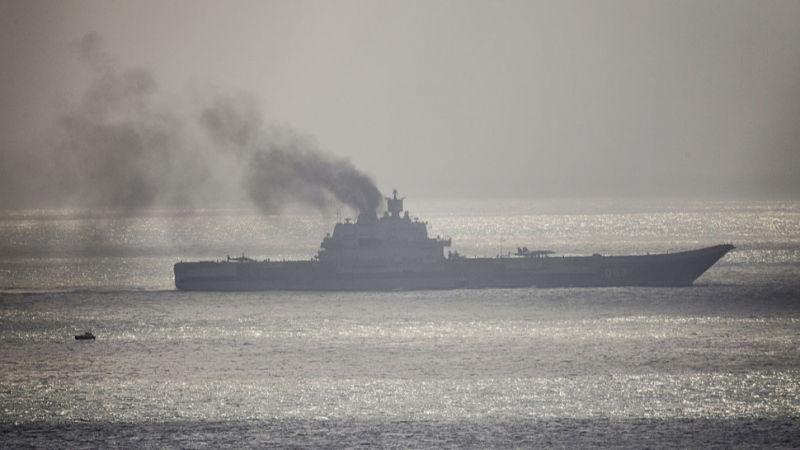Russian aircraft carrier loses second fighter jet off Syrian coast after crash during landing
Second crash in three weeks calls Admiral Kuznetsov’s presence in the Mediterranean into question

Your support helps us to tell the story
From reproductive rights to climate change to Big Tech, The Independent is on the ground when the story is developing. Whether it's investigating the financials of Elon Musk's pro-Trump PAC or producing our latest documentary, 'The A Word', which shines a light on the American women fighting for reproductive rights, we know how important it is to parse out the facts from the messaging.
At such a critical moment in US history, we need reporters on the ground. Your donation allows us to keep sending journalists to speak to both sides of the story.
The Independent is trusted by Americans across the entire political spectrum. And unlike many other quality news outlets, we choose not to lock Americans out of our reporting and analysis with paywalls. We believe quality journalism should be available to everyone, paid for by those who can afford it.
Your support makes all the difference.Russia’s Admiral Kuznetsov aircraft carrier has managed to write off two planes because of problems during landing after missions in Syria in the last three weeks, it has emerged.
Russian President Vladimir Putin sent the country’s only aircraft carrier - previously part of the Soviet Union navy in the 1980s - to the port of Tartous in government-held Syria in November as part of a huge deployment designed to both bolster Syrian President Bashar al-Assad’s forces and show off Russia’s military strength.
However, analysts have pointed out that the Kuznetsov may be more trouble than it’s worth in combat after two crashes in the space of three weeks.
A MiG-29K crashed while trying to land on November 14, followed by a Su-33 fighter on December 3, the Russian Ministry of Defence confirmed.
Despite good weather conditions, the Su-33 ended up in the Mediterranean after the arresting cables that slow jets upon landing snapped. In both incidents, the pilots managed to eject safely and were picked up by search and rescue teams.
The carrier is somewhat of a joke among defence and security experts. It is prone to frequently breaking down, and is now accompanied by tugboats, just in case, and Russian media has reported that it only has 25 working toilets for up to 2,000 crew.
The Kuznetsov also uses an unreliable ‘ski jump’ launch pad when planes take off, unlike the catapults used by more sophisticated US-built ships.
While the Kuznetsov can carry 15 planes at a time, it is designed for protecting home waters rather than the type of mission it is currently on, naval experts say.
“This carrier was never designed for projecting power on shore,” Pavel K Baev, who studies Russian military reform at the Peace Research Institute Oslo, told The Washington Post.
“The fact of the military matter is that this deployment adds nothing, just absolutely nothing to the capabilities [that Russia has on the ground in Syria],” he added.
Most of the current Russian bombing of rebel areas in Idlib and Homs provinces has been launched from regime ground bases. There have been reports that Russia has been moving planes from the Kuznetsov to Syrian airfields in the last week.
Russia began military intervention at the request of Mr Assad in 2015, a move that is widely acknowledged to have turned the tide of the almost six-year-old war in the regime’s favour.
The renewed Russian-supported Syrian assault on rebel-held east Aleppo has killed more than 300 people, including 46 children, monitors say.
Join our commenting forum
Join thought-provoking conversations, follow other Independent readers and see their replies
Comments